- Free Estimates
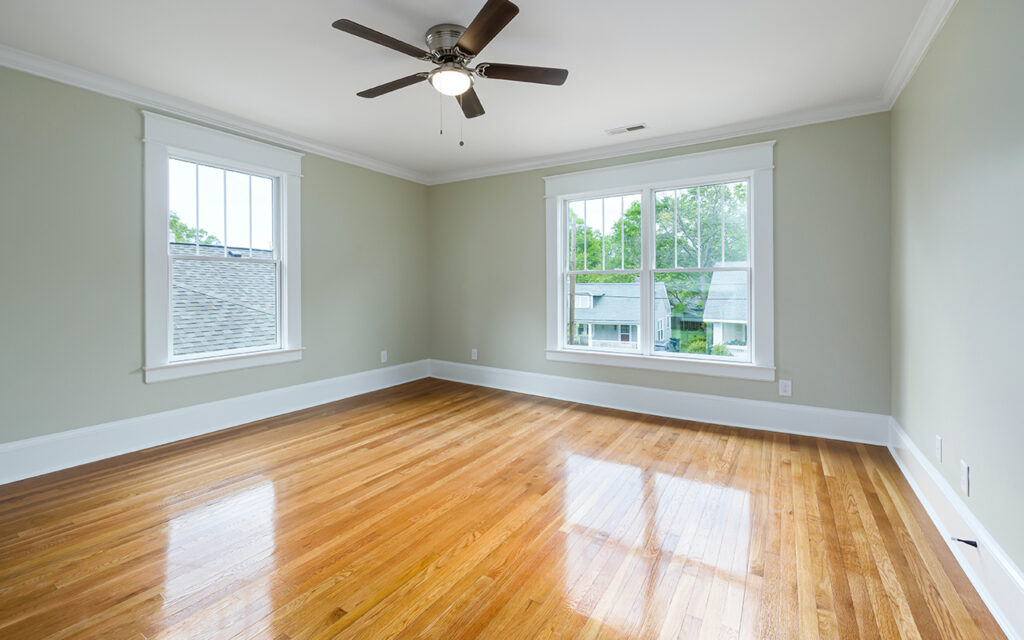
Key Takeaways✔ Regular sweeping or vacuuming helps prevent surface scratches by removing dirt and debris. ✔ Using warm water and mild detergent keeps the floor clean without damaging the finish. ✔ A diluted vinegar solution gently lifts grime while being safe for most vinyl surfaces. ✔ Baking soda paste works well for treating small stains without causing abrasion. ✔ Too much water can seep into seams and cause long-term damage to vinyl floors. ✔ Commercial vinyl floor cleaners are useful for deep cleaning when natural methods aren’t enough. |
Vinyl flooring is a popular choice for many homes thanks to its durability, water resistance, and low maintenance. But even though it’s easy to care for, cleaning it the wrong way can lead to damage, dullness, or stains that are hard to remove. Using the right tools and products helps protect the surface while keeping the floors looking fresh and polished. Harsh chemicals, abrasive scrubbers, or soaking wet mops should be avoided to prevent wear over time.
Here are the safe and effective ways to clean vinyl floors at home.

Keeping vinyl floors clean starts with removing the daily buildup of dust, dirt, and small debris. These tiny particles may seem harmless, but over time, they can cause scratches on the floor’s surface, making it look dull and worn. Regular sweeping or vacuuming is one of the best ways to clean vinyl floors and helps preserve their appearance longer.
Even though vinyl flooring is durable, it’s not immune to scratching. When people walk across floors with dirt and grit under their shoes, those particles get dragged along the surface. Over time, this can lead to fine scratches that make the floor lose its shine and smooth finish.
The best way to clean vinyl floors is by using the right tools that can make a big difference when cleaning vinyl plank flooring. Some tools are too harsh and might actually cause more harm than good, so it’s important to choose equipment designed to protect rather than damage.
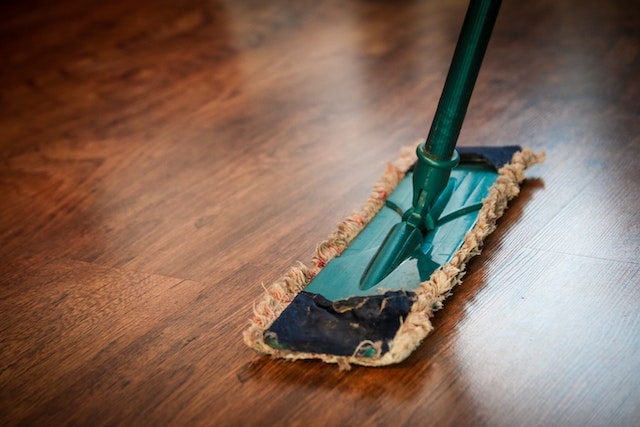
Can you use dish soap on vinyl floors? Yes! Mopping is one of the best ways to clean vinyl floors without damaging them. It helps remove sticky spots, light stains, and daily buildup. For most homes, mopping once or twice a week is enough to keep the floor looking clean and fresh.
Regular mopping helps maintain a clean floor and prevents grime from building up over time.
The best way to clean vinyl floors includes using safe products that won’t cause harm or dull the finish over time.
Cleaning vinyl floors doesn’t always require strong chemicals or expensive tools. A simple vinegar solution can be one of the best ways to clean vinyl floors, especially for everyday dirt and grime. It’s safe, budget-friendly, and gentle enough to use often.
A homemade vinegar solution is one of the best ways to clean vinyl floors— it’s easy to make and works well as a vinyl floor cleaner for regular use. It helps remove light dirt, stains, and even sticky residue without leaving streaks or dulling the floor.
Many people wonder, “Will vinegar damage vinyl floors?” When used properly, diluted vinegar is completely safe and does not strip the surface or cause fading.
Understanding what should you not clean vinyl plank flooring with can help avoid damage that shortens the life of the flooring. Some common products and tools may look safe but actually harm vinyl over time.
People often ask, “Can you use dish soap on vinyl floors?” Yes, but only in small amounts and combined with the right ingredients.
Scuff marks, spills, and stubborn stains are bound to happen on vinyl flooring. Fortunately, one of the best ways to clean vinyl floors without causing damage is by using a simple baking soda paste. It’s gentle, effective, and safe for most types of vinyl surfaces when used correctly.
Baking soda is mildly abrasive, which helps lift scuffs and stains without scratching the vinyl. It’s also natural and doesn’t leave behind harsh chemical residues.
Creating the paste is easy, and it only takes a couple of ingredients found in most homes. Combine two tablespoons of baking soda with a small amount of warm water to create a thick, spreadable paste. Make sure the mixture isn’t too runny so it stays in place during cleaning.
Knowing how to apply the paste is just as important as the mix itself. Here’s a safe method to get the best results:
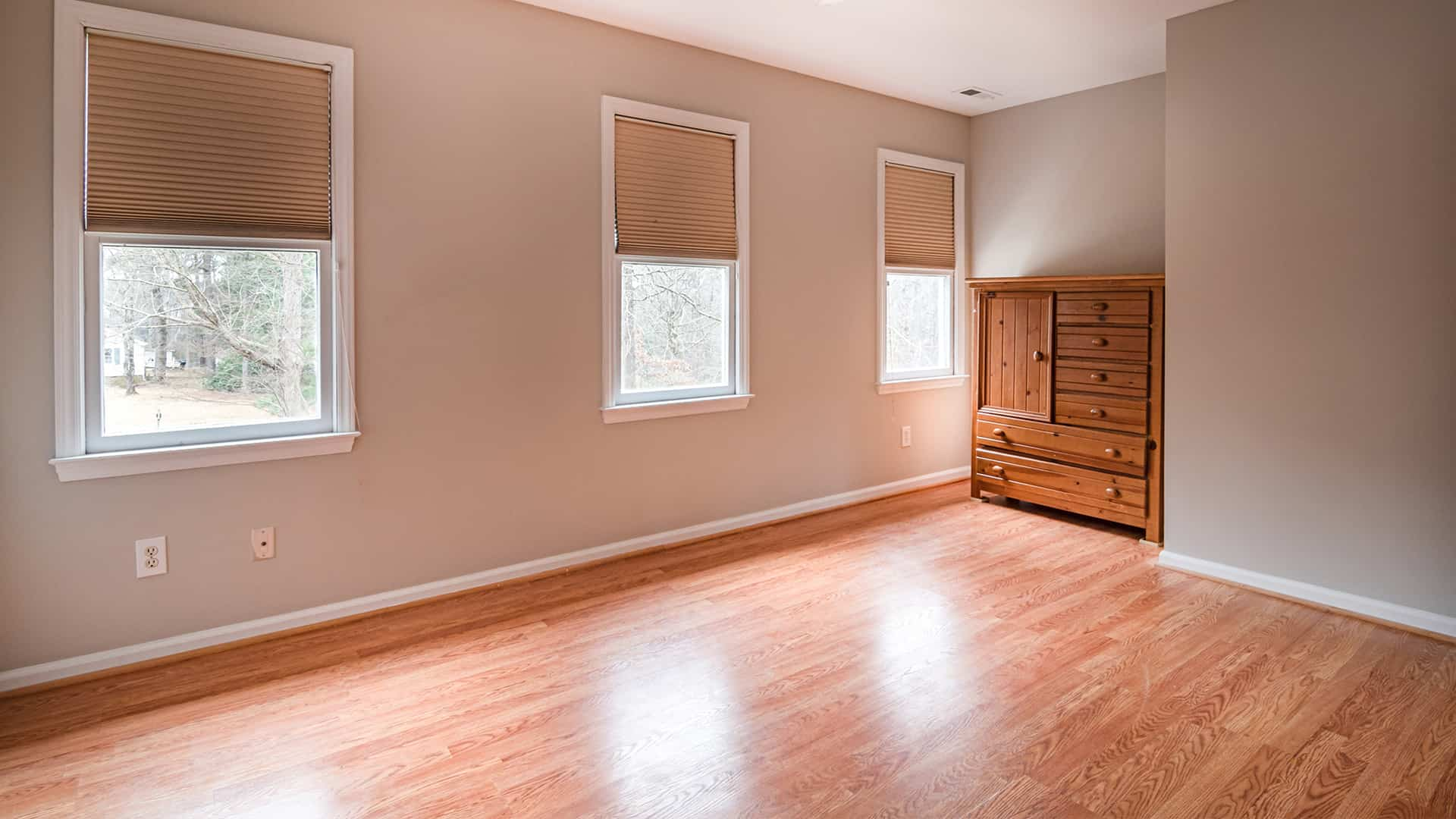
Wiping incorrectly could leave residue or damage the surface. Use these steps to clean effectively and gently.
Keeping too much water off vinyl floors is one of the easiest ways to protect them. Although vinyl is water-resistant, it’s not waterproof. Standing water can cause long-term damage, especially around the seams where the planks or tiles meet. Moisture can seep through and loosen the adhesive or even cause the edges to curl up over time.
Vinyl seams are usually sealed, but they’re still the most vulnerable part of the floor. When too much water sits on the surface, it can slowly make its way between the cracks and cause trouble.
When it’s time to mop, using a damp mop instead of a soaking wet one is a safer choice. This cleaning method is both gentle and effective. It avoids the risk of damaging the seams and keeps the finish looking clean.
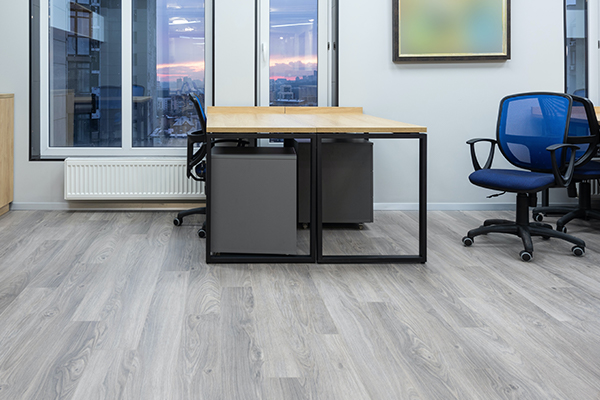
Sometimes, homemade solutions might not be enough—especially for stubborn stains or high-traffic areas. In these cases, a commercial vinyl floor cleaner can help keep the surface looking clean and well-kept without causing damage.
Homeowners often ask, what should you not clean vinyl plank flooring with? There are certain situations when a commercial product is the better choice. These products are made specifically for vinyl and usually offer a deeper clean than homemade mixtures.
Not all floor cleaners are safe for vinyl. Harsh chemicals can strip the finish or cause discoloration. Picking the right product keeps floors clean and helps them last longer.
Professionals clean vinyl floors by first removing loose dirt using a vacuum or soft-bristle broom. They typically use a pH-neutral vinyl floor cleaner with a damp mop, not soaking wet, to prevent moisture damage. Stubborn stains are treated with gentle spot-cleaning techniques. Buffing machines may also be used to restore shine without scratching the surface
Yes, it’s recommended to rinse vinyl floors after mopping with vinegar. Even though vinegar is diluted, it can leave a dull residue over time if not rinsed off. Use plain water for a quick rinse to keep the surface clean and streak-free. Always use a well-wrung mop to avoid excess water.
Vinyl floors may still look dirty after mopping if there’s too much soap, not enough rinsing, or buildup from previous products. Using a dirty mop or not sweeping beforehand can also leave residue behind. Stick to a mild cleaner and rinse properly to avoid streaks and film. Deep cleaning may be needed if buildup has formed over time.
To keep vinyl floors shiny and clean, sweep or vacuum regularly to remove dirt. Mop with warm water and a pH-neutral cleaner to avoid damage or dullness. Use a vinyl-safe polish occasionally to boost shine. Avoid abrasive scrubbers and harsh chemicals that can scratch or wear down the finish.
Vinyl flooring is generally better for moisture-prone areas like bathrooms or kitchens because it’s waterproof. Laminate is more rigid and can feel more like real wood, but is not as water-resistant. Vinyl is also easier to maintain and often softer underfoot. The best choice depends on the location and personal preferences.
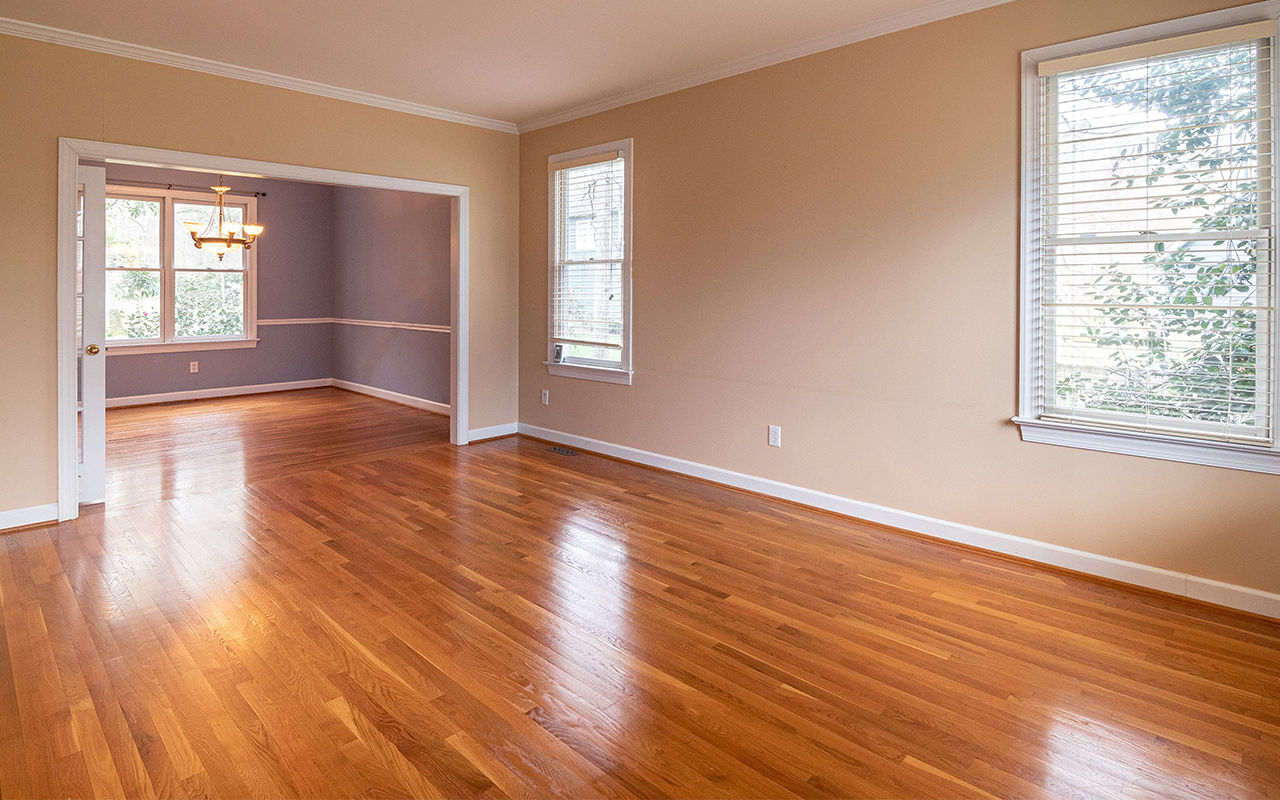
Keeping vinyl floors clean, shiny, and long-lasting doesn’t have to be a challenge. Brewster Flooring Company offers professional care and trusted solutions for homes and businesses. From selecting the right vinyl floor cleaner to applying safe maintenance methods, every service is backed by industry experience and attention to detail. Reliable help is always nearby—right here in Brewster, NY.
Call Brewster Flooring Company today to schedule a vinyl floor care consultation!